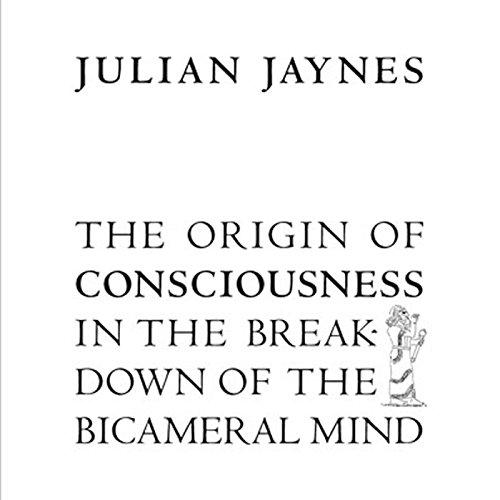← The Origin of Consciousness in the Breakdown of the Bicameral Mind
The Origin of Consciousness in the Breakdown of the Bicameral Mind Chapter 6 The Moral Consciousness of the Khabiru
Author: Julian Jaynes Publisher: New York, NY: Houghton Mifflin Company. Publish Date: 1976 Review Date: Status:💥
Annotations
324
The Elohim. Another observation I would like to make concerns that very important word which governs the whole first chapter of Genesis, elohim. It is usually incorrectly translated in the singular as God. ‘Elohim’ is a plural form; it can be used collectively taking a. singular verb, or as a regular plural taking a plural verb. It comes from the root of ‘to be powerful’, and better translations of ‘elohim’ might be the great ones, the prominent ones, the majesties, the judges, the mighty ones, etc.
324
From the point of view of the present theory, it is clear that elohim is a general term referring to the voice-visions of the bicameral mind. The creation story of the first chapter of Genesis is thus a rationalization of the bicameral voices at the edge of subjectivity. “In the beginning the voices created heaven and earth.” Taken as such, it becomes a more general myth that could have been indigenous to all of the ancient bicameral civilizations.
325
He-who-is. At the particular time in history that we pick up the story as the Pentateuch has put it together, there are only a few remaining elohim in contrast to the large number that probably previously existed. The most important is one recognized as Yahweh, which among several possibilities is most often translated as He-who-is.5 Evidently one particular group of the Khabiru, as the prophetic subjective age was approaching, was following only the voice of He-who-is, and rewrote the elohim creation story in a much warmer and more human way, making He-who-is the only real elohah. And this becomes the creation story as told from Genesis 2:4 et seq. And these two stories then interweave with other elements from other sources to form the first books of the Bible.
325
Other elohim are occasionally mentioned throughout the older parts of the Old Testament. The most important of them is Ba’al, usually translated as the Owner. In the Canaan of the times, there were many Owners, one to each village, in the same way that many Catholic cities today have their own Virgin Marys, and yet they are all the same one.
326
Paradise Lost. A further observation could be made upon the story of the Fall and how it is possible to look upon it as a myth of the breakdown of the bicameral mind. The Hebrew arum, meaning crafty or deceitful, surely a conscious subjective word, is only used three or four times throughout the entire Old Testament. It is here used to describe the source of the temptation. The ability to deceive, we remember, is one of the hallmarks of consciousness. The serpent promises that “you shall be like the elohim themselves, knowing good and evil” (Genesis 3:5), qualities that only subjective conscious man is capable of. And when these first humans had eaten of the tree of knowledge, suddenly “the eyes of them both were opened,” their analog eyes in their metaphored mind-space, “and they knew that they were naked” (Genesis 3:7), or had autoscopic visions and were narratizing, seeing themselves as others see them.6 And so is their sorrow “greatly multipled” (Genesis 3:16) and they are cast out from the garden where He-who-is could be seen and talked with like another man.
555
6 It is interesting in this connection to read Maimonides, Guide of the Perplexed, I.2.
326
As a narratization of the breakdown of the bicameral mind and the coming of consciousness, the story should be rationalistically contrasted with the Odyssey as discussed in the previous chapter. But the problems are similar, as is thé awe we should feel toward its unknown composition.
